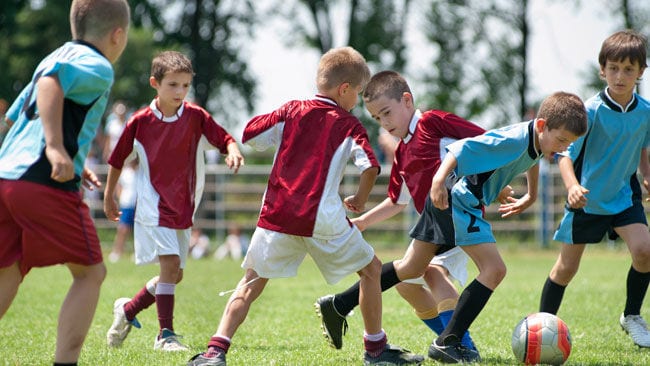Deciding when to introduce your child to organized sports is an important consideration, as it can have a significant impact on their physical development, social skills, and overall well-being. In this comprehensive guide, we will delve into key factors to consider when determining the ideal age for when should your child begin participating in organized sports. From developmental milestones to expert recommendations, we’ll provide you with valuable insights to help you make an informed decision and set your child up for a positive and fulfilling sports experience. Discover the right time to ignite your child’s passion for sports and unlock the countless benefits that come with their active participation.
Moreover, according to the American Academy of Pediatrics, unstructured play actually possesses a variety of developmental benefits for kids, especially socio-emotionally and at younger ages. So while parents want to teach their children everything they need for success, sometimes these skills aren’t developed as orthodoxly as they think.
Organized Adult-Driven Sports vs. Unstructured Child-Driven Play
Unorganized play allows children to engage with one another, learn decision-making skills, negotiate and resolve conflicts, discover and fully engage in interests, and develop self-advocacy skills. Furthermore, they are able to do so without the stress or pressure that comes along with the formalized rules and adult interests involved in organized sports. But even though this unstructured playtime is not adult-driven, it provides parents with meaningful time to engage with their children.
So you’re saying I shouldn’t sign my kid up for team sports? Then how will they learn the importance of striving for their goals, overcoming failures, and working towards success?
Well, that’s not what we’re saying; we fully acknowledge the developmental benefits of organized sports, but our point is that unstructured play is just as essential to your child’s success and happiness as the values learned from organized team sports. The bottom line is that they need a healthy balance of the two. Every child is different, and you will ultimately have to form the balance that works for yours.
What Age Should They Start?
In short, around ages 6-12, although this may vary based on the sport and development of each individual child. Until age 6 children generally lack the attention spans and motor skills necessary to participate in any organized team sports. However, most are able to begin developing some simplistic sports skills, such as running, swimming, throwing, and catching, which can be improved upon during periods of unstructured playtime. Children of these ages learn best when given minimum instruction, and need the freedom to explore, experiment, and learn from other children.
From ages 6-9, most kids are now ready for basic organized sports such as soccer, baseball, running, swimming, tennis, gymnastics, martial arts, and skiing or snowboarding. At this point, most have developed the fundamental motor skills necessary for basic organized sports, but may struggle with the hand-eye coordination, strategies, and teamwork involved in more complex sports, such as football, hockey, basketball, and volleyball. At this age, learning new skills should be stressed, far above competitions, and adult-driven concepts such as winning.
Around ages 10-12, most children are officially ready for complex team sports. They are now developed enough to remember strategies, embrace concepts such as teamwork, and are able to perform the complex maneuvers necessary for these sports.
Things to Keep in Mind: Competition, Early Specialization, and Puberty
Until ages 10-12, competition shouldn’t even be a factor. Both you and your child’s main focus should be learning new skills and having fun. When you involve competitive factors early in their development, they often do not have the cognitive ability to separate the outcome of a sporting event and their own self. In other words, the concepts of losing or winning at this stage in their development may negatively impact their own self worth, something you never want to put a child through. Additionally, it is important at these young ages that the rules and equipment of the sports your children participate in adjusted to be more flexible in accordance with aspects of learning rather than winning.
While, many young children seem to specialize in specific sports nowadays, this can come at a cost. It is important to always exercise caution when engaging your child in early specialization. Children participating in intensive sports training at young ages commonly attain injuries, unproductive pressure, and mental burnout.
Last but not least, puberty brings with it its only slew off problems. During puberty it is important that your child is matched with competitors of similar capability. On one front, this means competitors of the same sex, as now the physical stature of boys and girls will begin to differ. On the other hand, this also means same sex competitors that are of similar physical attributes. Children who go through puberty earlier will have a height, strength, and mass advantage of children who go through puberty later. It is important to acknowledge this and not attribute disadvantages in your child’s physical capabilities to their actual skills.
BIO: Jacob Levine is an online blogger working with Rebuilding Champions, the Center for Athletic Performance in Scottsdale, Arizona. We’ve offering exceptional sports-training advice for years, visit today to learn more!








